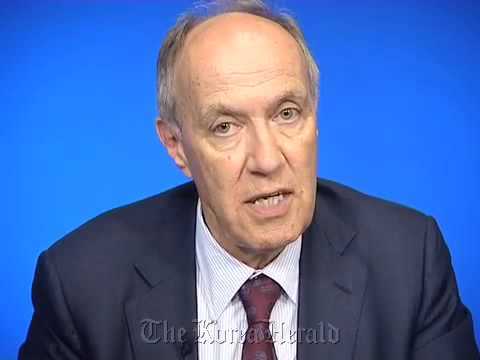
Innovation is a central driver of economic growth, development and better jobs. It is the key for firms to successfully compete in the global marketplace. Innovation provides the answer to numerous economic and social challenges, whether financial crisis recovery, climate change or the fight against deadly diseases. It is the source of improvements in the quality of our everyday life.
Innovation is the space between a problem and its solution. A balanced intellectual property system plays a vital role. Working with its 184 member states, the World Intellectual Property Organization supports global investment in knowledge creation through the development of a robust and sustainable IP system, one that strikes an appropriate balance between the needs and interests of innovators, investors and society. Such a system fosters further innovation, and its diffusion, in a way that benefits society at large.
The innovation landscape has much evolved in recent years with the rise of IP power-houses in North East Asia, including the Republic of Korea. The IP system is one of the indispensable mechanisms for translating knowledge into commercial assets. IP rights create a secure environment for investment in innovation and provide a legal framework for trading intellectual assets. The government of the Republic of Korea, through targeted actions such as the enactment of the Framework Act on Intellectual Property and the establishment of the Presidential Council on Intellectual Property, has shown remarkable foresight in leveraging the power of innovation.
In a recent ranking of 125 economies according to innovation levels, the Republic of Korea was one of two Asian countries which ranked in the top 20. The report observed that like the Netherlands, Germany, and the United States of America, the Republic of Korea is among the most efficient innovators among high-income countries, meaning, for instance, that capacity to transform R&D expenditure into new inventions and technologies is strong.
Moreover, a recent European Union report showed that relative to GDP, businesses in the Republic of Korea invest twice as much in research and development ― a strong indicator of innovative capacity - than in the EU countries. The same EU report noted that the rate of growth of applications by the Republic of Korea under the international patent system ― WIPO’s Patent Cooperation Treaty ― is almost double that of the EU.
Until recently, the PCT system was mainly used by applicants from North America and Western Europe. In 2010, East Asia overtook them to become the sub-region accounting for the most PCT filings. Indeed, since the economic recovery that followed the dot-com recession, the major East Asian filers ― China, Japan and the Republic of Korea ― experienced particularly rapid growth in applications. They continued to increase their filings even during and after the most recent economic downturn ― unlike North America and Western Europe. From 2002 to 2010, the average annual growth rate of East Asia was 15.1 percent compared to 1.1 percent for North America and 3.1 percent for Western Europe.
I welcome the Republic of Korea’s evident commitment to the use and future development of the PCT. The Korean Intellectual Property Office is the fourth largest patent offices in terms of the number of applications filed and Korean applicants are the fifth largest origin of PCT filings. The growing use of the PCT by Korean inventors has resulted in the adoption of the Korean language as an official language of publication for international applications. KIPO has become an international searching authority and was chosen by PCT applicants to conduct more than 23,000 international searches in 2010, some 14.2 percent of the total. The country’s participation in the use of the PCT is a clear indication of the fundamental importance of innovation to Korean industry and exports, and means that the country is primed to play an important role in the future development of the international patent system.
The Republic of Korea’s experience and success in using the IP system to promote its own economic development and industrial competitiveness, its active engagement in international IP policy debates and the coherent implementation of its IP policies at the national level offer valuable insights for many other countries. In today’s economically challenging and highly competitive world, a commitment to research and development, educational excellence and innovation is sine qua non for securing an advantage in the marketplace. The Republic of Korea’s experience offers many useful insights in terms of the enormous potential that astute and strategic use of the IP system offers as a means of promoting economic growth and wealth creation.
One thing is clear: if the world is to return to sustained economic growth while ensuring the preservation of our environment, then our focus must be on innovation. If we are to meet the enormous challenges facing humanity, the global community must work together to marshal our creative resources to develop new, more effective solutions. The Republic of Korea, a global innovation leader, has a key role to play in shaping the multilateral, economic and technological landscape of the 21st century.
By Francis Gurry, Director General, World Intellectual Property Organization








![[Graphic News] More Koreans say they plan long-distance trips this year](http://res.heraldm.com/phpwas/restmb_idxmake.php?idx=644&simg=/content/image/2024/04/17/20240417050828_0.gif&u=)
![[KH Explains] Hyundai's full hybrid edge to pay off amid slow transition to pure EVs](http://res.heraldm.com/phpwas/restmb_idxmake.php?idx=644&simg=/content/image/2024/04/18/20240418050645_0.jpg&u=20240419100350)





![[From the Scene] Monks, Buddhists hail return of remains of Buddhas](http://res.heraldm.com/phpwas/restmb_idxmake.php?idx=652&simg=/content/image/2024/04/19/20240419050617_0.jpg&u=20240419175937)

![[KH Explains] Hyundai's full hybrid edge to pay off amid slow transition to pure EVs](http://res.heraldm.com/phpwas/restmb_idxmake.php?idx=652&simg=/content/image/2024/04/18/20240418050645_0.jpg&u=20240419100350)

![[Today’s K-pop] Illit drops debut single remix](http://res.heraldm.com/phpwas/restmb_idxmake.php?idx=642&simg=/content/image/2024/04/19/20240419050612_0.jpg&u=)